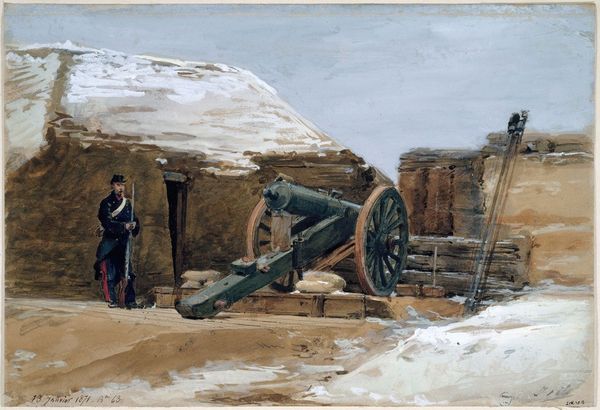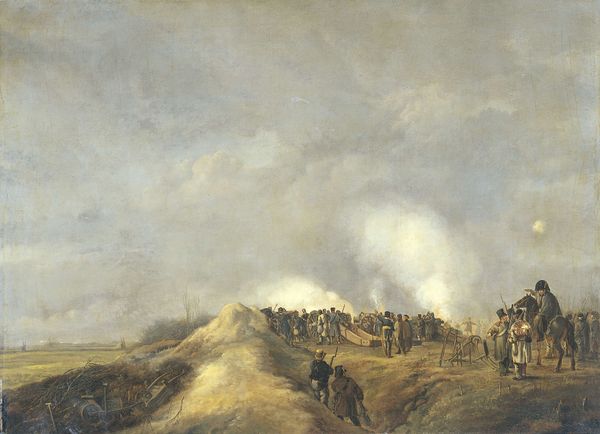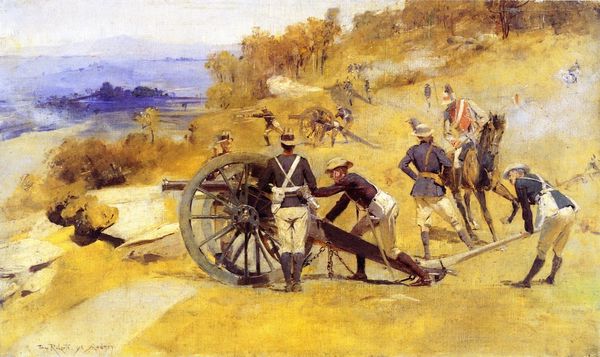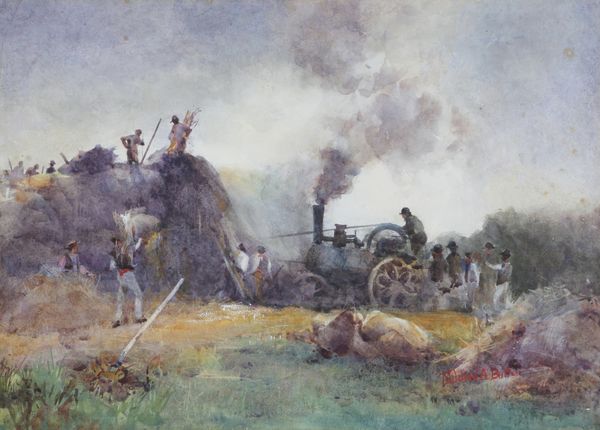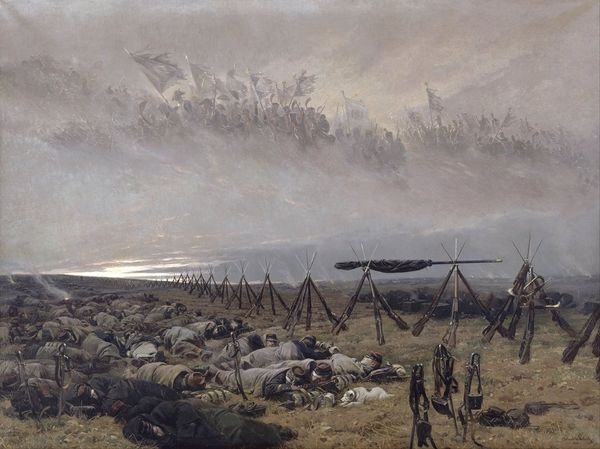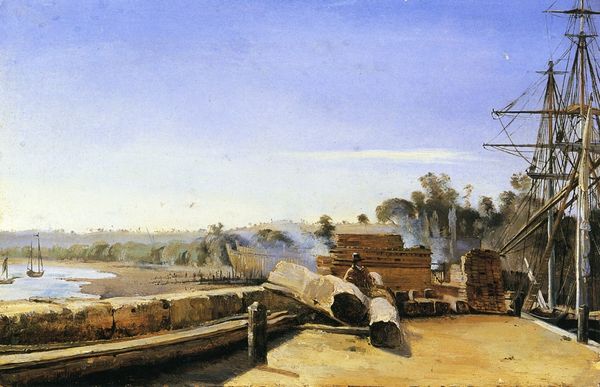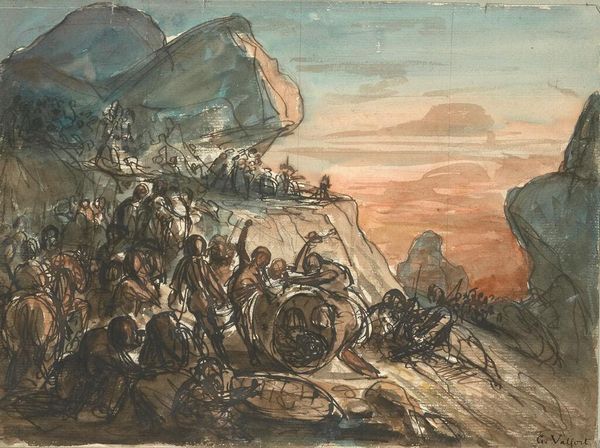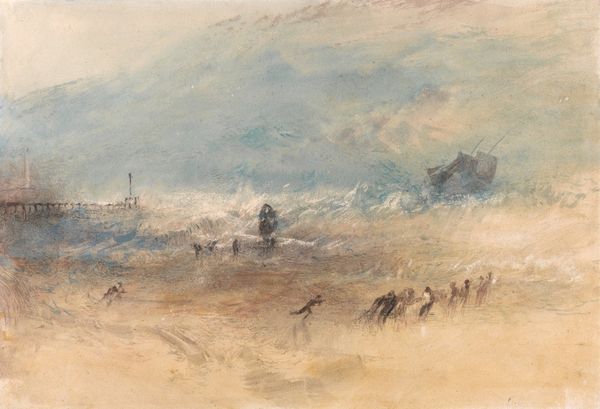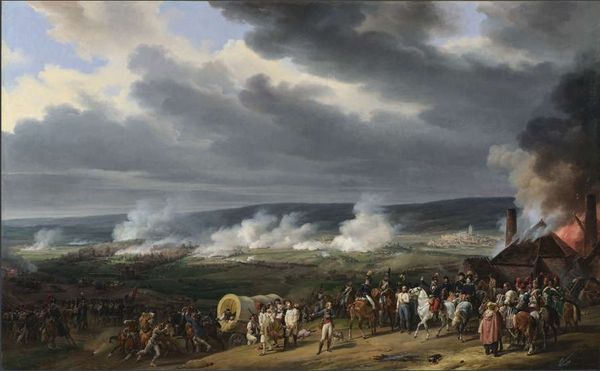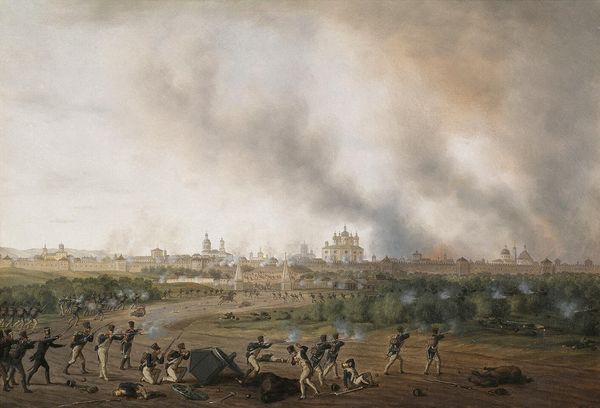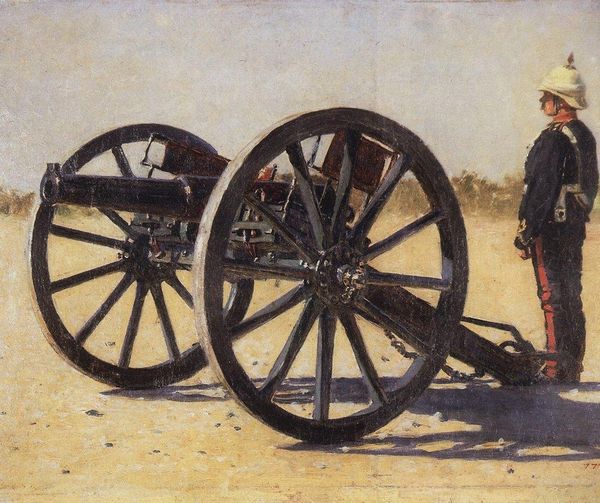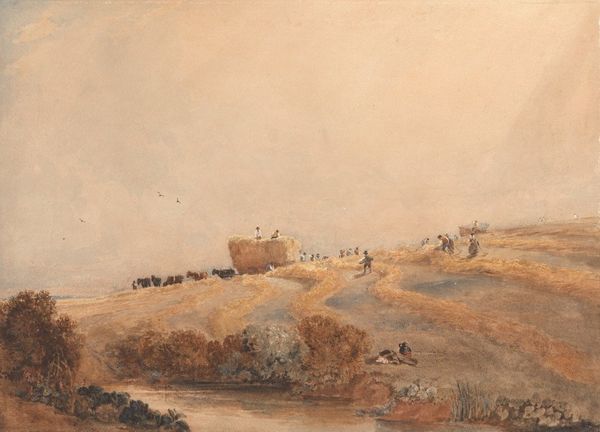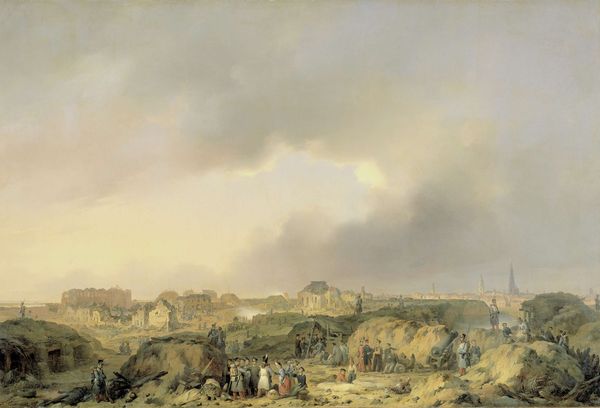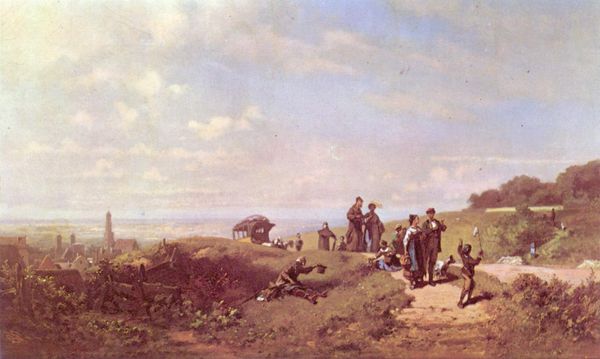
mixed-media, watercolor
#
mixed-media
#
landscape
#
watercolor
#
watercolour illustration
#
history-painting
#
mixed media
#
realism
Copyright: Public Domain: Artvee
Curator: Isidore Pils's "Les Buttes-Chaumont", created in 1871 using mixed media and watercolor, depicts a rather somber scene. Editor: It evokes an immediate sense of desolation. The muted tones and stark arrangement of cannons create a visual language of abandonment, wouldn't you agree? Curator: Absolutely. The composition is built upon horizontal lines established by the cannons themselves and reinforced by the subtle gradation of the sky. It provides structure, but a bleak structure indeed. Notice the artist's choice to keep the horizon so low in the picture plane? Editor: And within that structure, consider the symbolic weight of these artillery pieces. Cannons often represent power and destruction, of course, but placed in such a barren landscape, they speak to a more specific, painful kind of loss. This was painted shortly after the Franco-Prussian War, a time of great national trauma for France. Curator: Yes, context is key. The landscape genre here isn’t just picturesque; it acts as a vehicle for national mourning. Pils meticulously renders the textures of earth and metal. This almost documentary approach heightens the emotional impact. Editor: It’s in these textures and muted palette that Pils locates an elegiac tone. The cannons, rendered with meticulous detail, aren’t merely objects; they stand as a metaphor for national vulnerability and the trauma inflicted on both landscape and psyche. Curator: Agreed. The somber colors underscore the emotional gravity. Pils uses variations of brown and gray, further intensifying the atmosphere. It creates this sensation of almost a 'wasteland', evoking a psychological feeling of dread and melancholia in the observer. Editor: Examining the semiotic landscape, these abandoned tools of war could then be viewed as symbolizing a transition or end-point for French Imperial power, hinting to its symbolic mortality by way of tangible obsolescence. Curator: Well said. This combination of form, material, and color constructs a powerful statement. Even the absence of figures in the foreground directs our attention to the heavy guns themselves, implying the deeper meaning of his message. Editor: Ultimately, what began as a simple-seeming landscape is actually heavy with meaning and historical association. Curator: I concur. This particular mixed media piece prompts reflections on the intrinsic qualities of a scene layered in history, offering insight into its enduring impact.
Comments
No comments
Be the first to comment and join the conversation on the ultimate creative platform.
